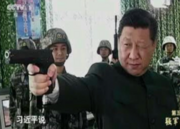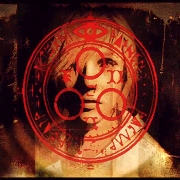|
dead gay comedy forums posted:going full art cop on this because it is necessary i loved the full post that i quoted. but, because i'm also a grouchy marxist interested in the arts, i want to challenge you: make a full marxist art cop post about a work of marxist art theory that you think gets it right. as an art school drop out, i want to read both that kind of post and the book it's about. if you do so, i will try and make an effortpost about cool marxist art theory as well, to return the favor
|
|
|
|

|
| # ? Apr 30, 2024 04:20 |
|
I forget if I've asked this before but: I seem to remember that Howard Zinn wrote something about how the writing of the American first amendment reflects the fact that a bunch of the founding fathers were in the newspaper business. Is that a real memory? Did Zinn actually write something like that? Am I thinking of someone else?
|
|
|
|
can anyone recommend some good historical fiction books that also teach about whatever history the novel takes place in?
|
|
|
|
err posted:can anyone recommend some good historical fiction books that also teach about whatever history the novel takes place in? Red Plenty by Francis Spufford is a great historical novel about the Khrushchev-era Soviet Union
|
|
|
|
err posted:can anyone recommend some good historical fiction books that also teach about whatever history the novel takes place in? I can't speak for it, but I've heard The Pillars of the Earth goes to extreme lengths to make everything as accurate as possible to the timeperiod Hand Knit posted:I forget if I've asked this before but: I've not been able to find anything, it may have been someone else or it may be something that's just impossible to find with random google searches because every keyword is also a hot topic. Is there something you're looking for specifically or do you just want a story with a really real feeling world? Timeline I haven't read in like 15 years and it may be quite bad but I do remember it went into a lot of detail about how life was back in the relevant period as part of the central premise
|
|
|
|
Recently finished the Conquest of Bread and wanted 2 give my trip report. Overall I liked it. I think Kropotkin's weakest bits were where he talks about how the bougie will just give up their mansions when it becomes clear that thier servants will not tend them for them. I think he has a lot of faith in spontaneous organization and expropiation of food, housing and clothing. I'm a bit more of an 'authortarian' than him and think that some kind of governing organ will be needed to keep things kind of in order However I think his bits on how stupid it is to assume that people will just foist off their work onto others is great. The stuff about how laziness is just a result of people being taught lovely or forced to do things they super don't want to do its great and almost made me cry. Real ahead of his time stuff. I also think that his bits on how we should be looking at what someone needs and wants to consume and figure out how to fit production towards that, rather than the opposite, is real big brain poo poo. Also the stuff on 'its stupid to try to put a value on labor since its impossible to say whose job is more important since A) all work is the result of every single person involved or who lived before and B) doing so would work to create a lovely class divide' is loving chef's kiss mwah. book's good and I wanna read some Mao now to shore up the other side of my wacky political philosphy. But before that I think I'm gonna read Zinn's People's History since I started it and also have the physical copy right here.
|
|
|
|
mcclay posted:Recently finished the Conquest of Bread and wanted 2 give my trip report. Mao is a good followup, as Mao more or less figured out and addressed all modern contradictions and reactionary counter-currents, but more specifically I would probably recommend State and Revolution by Lenin, which addresses much you mentioned here. Going Kropotkin -> Lenin -> Mao also has the benefit of learning along the lines of the actual revolutions of the time
|
|
|
|
Epic High Five posted:Mao is a good followup, as Mao more or less figured out and addressed all modern contradictions and reactionary counter-currents, but more specifically I would probably recommend State and Revolution by Lenin, which addresses much you mentioned here. Going Kropotkin -> Lenin -> Mao also has the benefit of learning along the lines of the actual revolutions of the time Yee. I was debating doing S&R before diving into Mao. My friend who recently went on a theory kick also found S&R slightly more useful than Contradictions. Though too be fair he was mostly annoyed at S&R feeling like lefttwitter infithing and Contradictions being overly philosophical. What he gave a glowing review for is Suicidal Revoluintary, which I plan to read after going through Zinn and the Theory Boys. I'm witholding my own judgment on S&R and Contradictions for now, but I think I'm gonna be rolling my eyes at Lenin Old Man Shouting at Clouds. As for Contradictions I feel like I'm gonna find more use in On Gurellia Warfare but we'll see After Suicidal I'm thinking about reading Pedagogy of the Oppressed or diving into Marcos's works, since I bookmarked both of them and can access them easily.
|
|
|
|
mcclay posted:Yee. I was debating doing S&R before diving into Mao. My friend who recently went on a theory kick also found S&R slightly more useful than Contradictions. Though too be fair he was mostly annoyed at S&R feeling like lefttwitter infithing and Contradictions being overly philosophical. What he gave a glowing review for is Suicidal Revoluintary, which I plan to read after going through Zinn and the Theory Boys. I'm witholding my own judgment on S&R and Contradictions for now, but I think I'm gonna be rolling my eyes at Lenin Old Man Shouting at Clouds. As for Contradictions I feel like I'm gonna find more use in On Gurellia Warfare but we'll see It isnt really that it is more useful, just that it is chronological order, with Leninism defeating a specific order for the reasons outlined, and Maoism defeating another for different reasons outlined, with each referencing and paying homage to the systems that preceded it
|
|
|
|
Epic High Five posted:It isnt really that it is more useful, just that it is chronological order, with Leninism defeating a specific order for the reasons outlined, and Maoism defeating another for different reasons outlined, with each referencing and paying homage to the systems that preceded it Fair enough, fair enough. I'm looking forwards to them anyways, though I worry that S&R and Contradictions will be way denser reads than Conquest of People's History
|
|
|
|
i'm curious if the rejection of putting a value on labor is a more general ethical "dishwashers are not less valuable than engineers" thing or an attempt to directly refute or reject marx, who, classically, believed the value of labor-power as well as the value generated by labor to be extremely important
|
|
|
|
Ferrinus posted:i'm curious if the rejection of putting a value on labor is a more general ethical "dishwashers are not less valuable than engineers" thing or an attempt to directly refute or reject marx, who, classically, believed the value of labor-power as well as the value generated by labor to be extremely important A mix of both I think. K seems to be deeply offended by the idea of continuing the wage system in any form and sees it as inclimical to a Communist society. He also thinks that the idea of surplus value should not even exist, to quote my boy Pete K posted:stead of a simple surplus not consumed by each generation; for, that a surplus-value should exist, means that men, women, and children are compelled by hunger to sell their labour for a small part of what this labour produces, and, above all, of what their labour is capable of producing. But this evil will last as long as the instruments of production belong to a few. As long as men are compelled to pay tribute to property holders for the right of cultivating land or putting machinery into action, and the property holder is free to produce what bids fair to bring him in the greatest profits, rather than the greatest amount of useful commodities ó well-being can only be temporarily guaranteed to a very few, and is only to be bought by the poverty of a section of society. It is not sufficient to distribute the profits realized by a trade in equal parts, if at the same time thousands of other workers are exploited. It is a case of PRODUCING THE GREATEST AMOUNT OF GOODS NECESSARY TO THE WELL-BEING OF ALL, WITH THE LEAST POSSIBLE WASTE OF HUMAN ENERGY.
|
|
|
|
To do full justice to Marx, he believed the labor theory of value to be important insofar as it's how value is determined in a capitalist mode of production. There are some instances in Capital when he talks about labor or cooperation abstracted from the capitalist mode of production and he's almost romantic about it, but I don't think there's enough there to infer that he thinks the labor theory of value should still be operative in socialist or communist societies.
|
|
|
|
finished S&R, here are my thoughts: gently caress me that was a chore to read through. Lenin is not my favorite writer and he seems to have a fascination with block quotes that would make a college kid struggling to reach word count blush. I think there are valuable ideas in here, but I also think that if there is a work that updates them and puts them in a more readable language, Leninists and Marxists in general should urge people towards those works, rather than this one. On the topic of the actual work itself I liked it far better than I thought I would. Anyone who thinks that Lenin was in favor of the state, esp the Stalinite one that would follow him, is loving doofin. The entire piece is about how first the bougie electoral state must be destroyed and the proletarian state reduced until it is fully gone afterwards. I have some issues with this idea, but anarchist ideas that State and Rev is about how the state is good actually could not be further from the truth. In terms of the main body of work I broadly agree with Lenin that there needs to be some co-option of the organs of the bougie state in order to fully repress and destroy reactionary forces. A military will need to be built and a policing force of some kind created to prevent a reactionary counter-revolution from occuring. I am less rosy on Lenin's ideas that a simple disbanding of the standing army and the reduction in pay of bureaucrats will help this. While I agree that violence and coercion will be needed to protect the revolution, that does not mean I am rosy on the idea. The danger of these decayed and co-opted organs of the state being used to create a whole new authortarian state is a real one. This may just be a case of 'listen, this is the sandwhich with the least amount of poo poo in it so take a loving bite", but I think any anarchist who reads S&R and still has major reservations about the creation of a dictatorship of the proletariat is well within their rights to have them. Over all I think S&R is an interesting and perhaps useful work, but I wish that it was written slightly more palatably. It had way less leftist twitter beefing than I thought, the the list of rando german names were long and my eyes glazed over on a lot of the letter to Babel poo poo. I have my worries about the transition from the first stage of communism, that is socialism, to the higher stages and I think that Lenin would probably take a different tone and tact if he knew what would come after him. Still, if you can handle the prose its worth a read, if only to make one think about the questions it raises.
|
|
|
|
could shave like 30% of some of Leninís writings when heís not calling everyone out
|
|
|
|
I think What Is To Be Done is the more general public intended work, in line the manifesto and Wage Labor and Capital. State and Rev always felt to me like a response to middle class eggheads who were specifically hung up on the necessity of a workers state to claim the monopoly on violence Pretty much every leftist text is littered with callouts and insults tho, it's part of their charm and tbh any work that lacks them should be viewed as suspect
|
|
|
|
Nearing the end of Assata Shakur's autobiography which is a really great insight on how the criminal justice system works as well as her life growing up in NY and the South. She has critiques on the Black Panthers and white leftists which I can see as valid in current times. Biggest thing to stand out was that one of her lawyers helping her case died at home and no one really knows the cause of death is really crack ping. The cops also took the legal papers and once they were given back a bunch of forensic stuff was gone.
|
|
|
|
Just finished Death's End, the third in the trilogy that starts with The Three-Body Problem. It was my favorite of the three, just fantastic. Cheng Xi is probably the only good character in the trilogy aside from Ye Wenjie. There's a lot less dialogue, which gets around a problem where either because of translation or the author's style, no one in the trilogy sounds like a real person. Death's End really spreads out across the ages like the other two books promised but didn't really deliver.
|
|
|
|
maybe a tall order but is there a good (but not gargantuan) book that provides an overview of post ww2 to collapse USSR and details how their economy/central planning worked?
|
|
|
|
mcclay posted:Recently finished the Conquest of Bread and wanted 2 give my trip report. What I love is where he describes a supermarket. Libs and chuds who know the barest minimum about anarchism dismiss it as fantasy; and I'd swear I'd seen that specific part similarly dismissed, where he's talking about a central location where people buy staples and partially-prepared food...IT'S A GODDAMNED SUPERMARKET. My main issue with it, and if anyone can direct me to an anarchist writer who addresses this, please I would like to see it, is how you can stave off subversion or violent destruction by a powerful capitalist state or movement without some kind of authoritarian hierarchy in place. Kropotkin goes on a bit about how the Paris commune failed because they didn't create material links with the countryside, but I'm pretty sure there had to be more to it than that, and the US wasn't really a player at the time. I mean, I have this suspicion that if you had an uprising in the imperial core with that level of success US elites would literally nuke it.
|
|
|
|
Wraith of J.O.I. posted:maybe a tall order but is there a good (but not gargantuan) book that provides an overview of post ww2 to collapse USSR and details how their economy/central planning worked? I don't know of a single book that does all this, but what I've read that falls into this wheelhouse is: "Planning in the Soviet Union", by Philippe J. Bernard - this was written in 1966, so it covers post-WW2 economics and central planning during the Stalinist era, followed by reforms under Khrushchev "Gorbachev and After", by Stephen White - this was written in the early 90s, so it covers Gorbachev and his further attempts at reform. It's not exclusively focused on the economy like Bernard's work is, but there's a lot to pick up on "Armageddon Averted", by Stephen Kotkin - this covers the events leading up to the actual collapse of the USSR and why it turned out the way it did
|
|
|
|
PostNouveau posted:Just finished Death's End, the third in the trilogy that starts with The Three-Body Problem. It was my favorite of the three, just fantastic. Cheng Xi is probably the only good character in the trilogy aside from Ye Wenjie. There's a lot less dialogue, which gets around a problem where either because of translation or the author's style, no one in the trilogy sounds like a real person. Death's End really spreads out across the ages like the other two books promised but didn't really deliver. I started the three body problem a couple years back on audiobook during my hellish commute but never finished it. I should really restart it now that my helliah commute is gone. Thanks for the reminder
|
|
|
|
gradenko_2000 posted:I don't know of a single book that does all this, but what I've read that falls into this wheelhouse is: yeah the first one sounds most like what i'm looking for, thanks i'll start there
|
|
|
|
Wraith of J.O.I. posted:yeah the first one sounds most like what i'm looking for, thanks i'll start there FWIW I'm reading it through the scribd ebook service - scanning for a buyable copy on the net seems to point to it being pricey
|
|
|
|
hmm yeah it looks like it, maybe i'll try the free trial on scribd
|
|
|
|
Wraith of J.O.I. posted:maybe a tall order but is there a good (but not gargantuan) book that provides an overview of post ww2 to collapse USSR and details how their economy/central planning worked?
|
|
|
|
letís revive this thread
|
|
|
|
cool thread
|
|
|
|

|
| # ? Apr 30, 2024 04:20 |
|
With the news that Jimmy Carter might be on death's door, I restarted Rick Perlstein's Reaganland. I had previously gotten through a few chapters but was so disgusted by Reagan and his fundamentalist wackado supporters (e.g: Anita loving Bryant) that I couldn't bear to keep reading. I'm mostly reading for insights into Carter's presidency, but I think there's going to be a lot in there that could easily apply to the modern day given how much of a homophobic panic there was in the late '70s. I have ABC of Anarchy but haven't ever read Conquest of Bread. I really need to find a copy of that; Kropotkin is one of the greats.
|
|
|



























